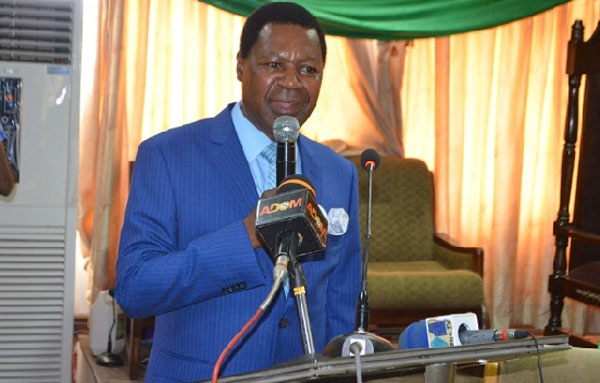Dr. Samuel Annor
Chief Executive Officer (CEO) of the National Health Insurance Authority (NHIA), Dr. Samuel Annor, has called for stricter sanctions for people found culpable of defrauding or attempting to defraud the authority.
He said the current sanctions fine of at least 2,500 penalty units meted out to culprits are not deterrent enough to make the NHIA devoid of thievery.
“We have put in the amendment that we have sent to the Ministry of Health for onward submission to the Attorney General (AG) and parliament for a change in the law that it should be a minimum of two years imprisonment,” he pointed out.
The NHIA CEO explained that except for special circumstances like the Takoradi incidence where two suspects found guilty were jailed 10 and five years, the NHIA is not able to recover its revenue by the time judgment is served.
“On the average if they move out with about a team of five people in terms of witnesses and AG’s Department and police force, it costs us GH¢6,000 to GH¢20,000 depending on where the case has reached and where it is being heard.
They have a minimum fine which is 2,500 penalty units and then what makes the thing problematic is that because the case drives on for so many years, if you take the value of money today and the judgment is awarded in the next seven years the value of money they pay to us becomes very little,” he said.
Dr. Annor was speaking at the opening of a three-day training session for the legal team of NHIA.
The training, which was organised by the AG’s Department, was to equip the legal team with tools for persecution culprits since the NHIA received the mandate to handle its own cases like forgery of claims document and others.
Stating the importance of the training, Dr. Annor averred that the NHIA has over the past few months strengthened its internal audit and quality assurance systems in the bid to ensuring efficient revenue management, however, the NHIA is challenged in terms of prosecution.
The NHIA CEO stated that the NHIA currently has about six cases pending before a court of competent jurisdiction, adding, “We are hoping that after their training being given the authority to carry on we will see how well it goes.”
By Jamila Akweley Okertchiri


